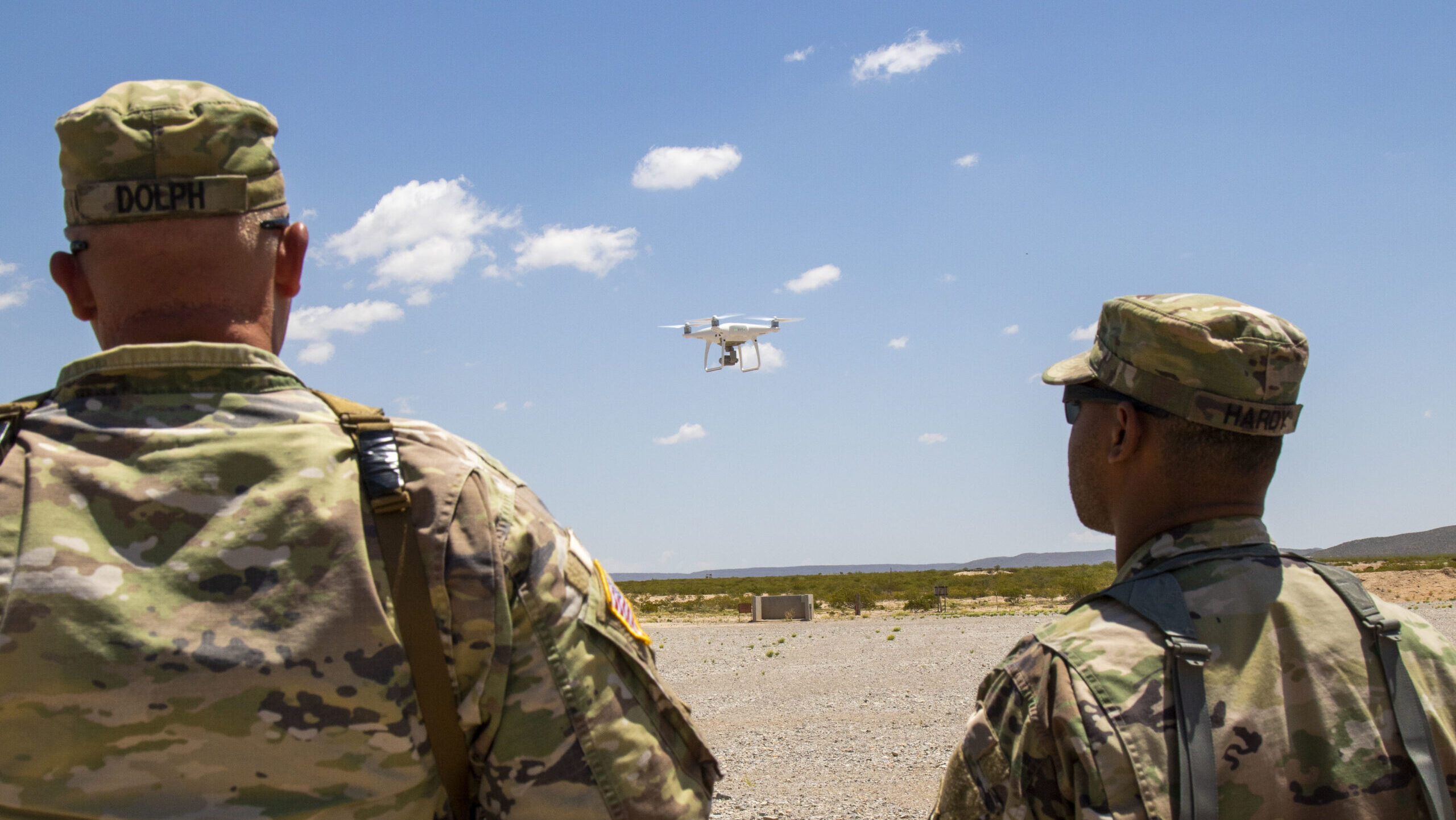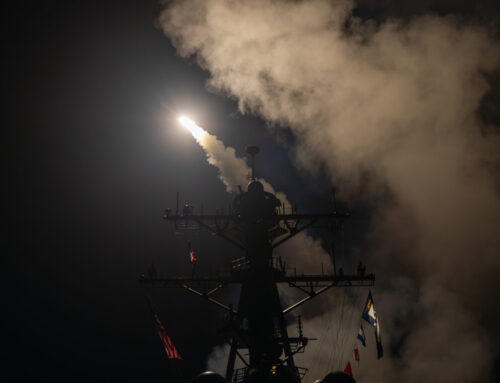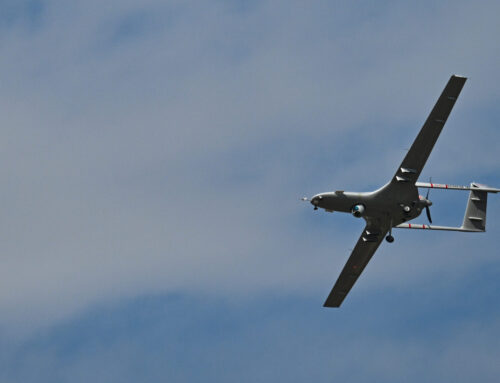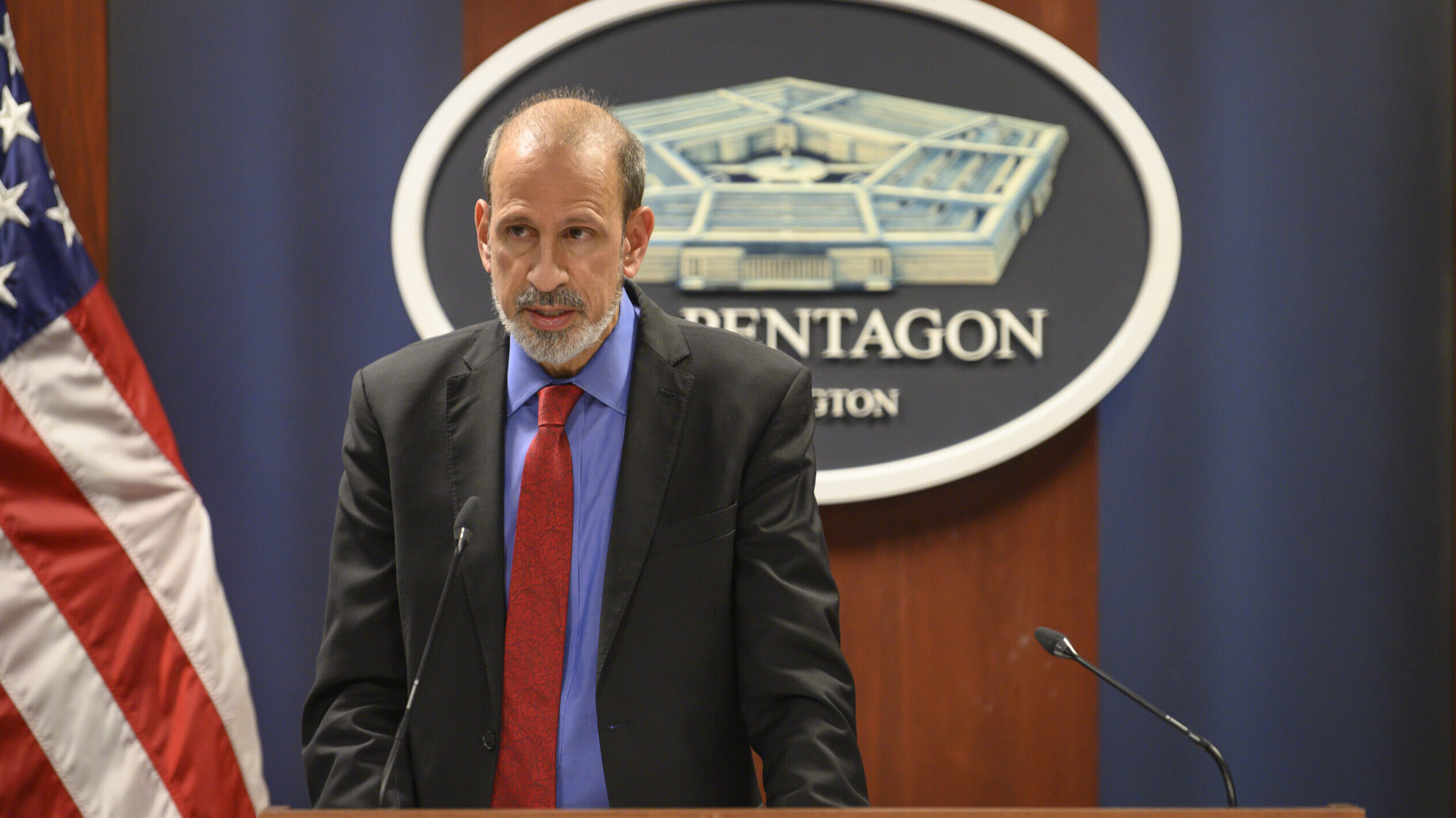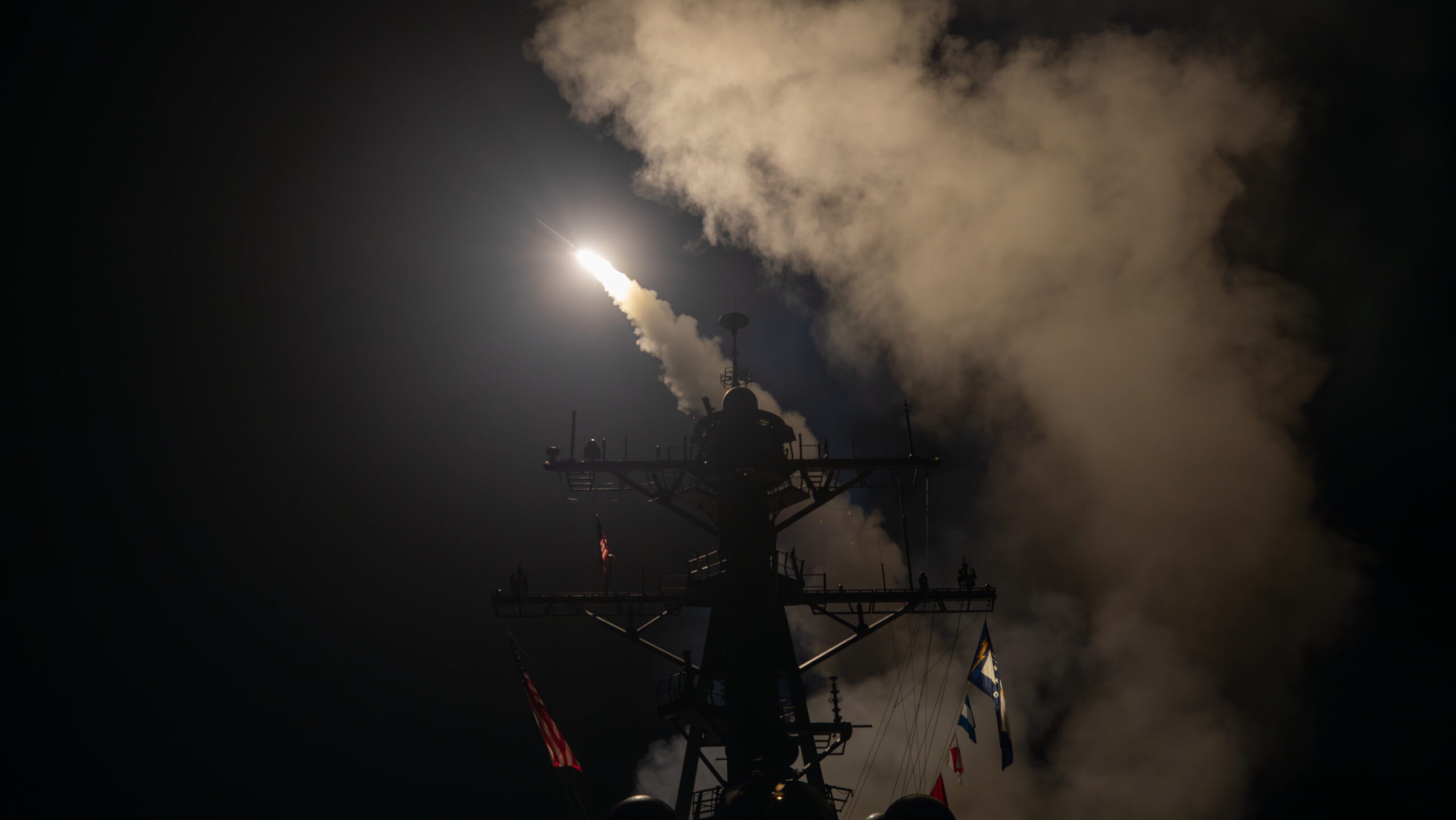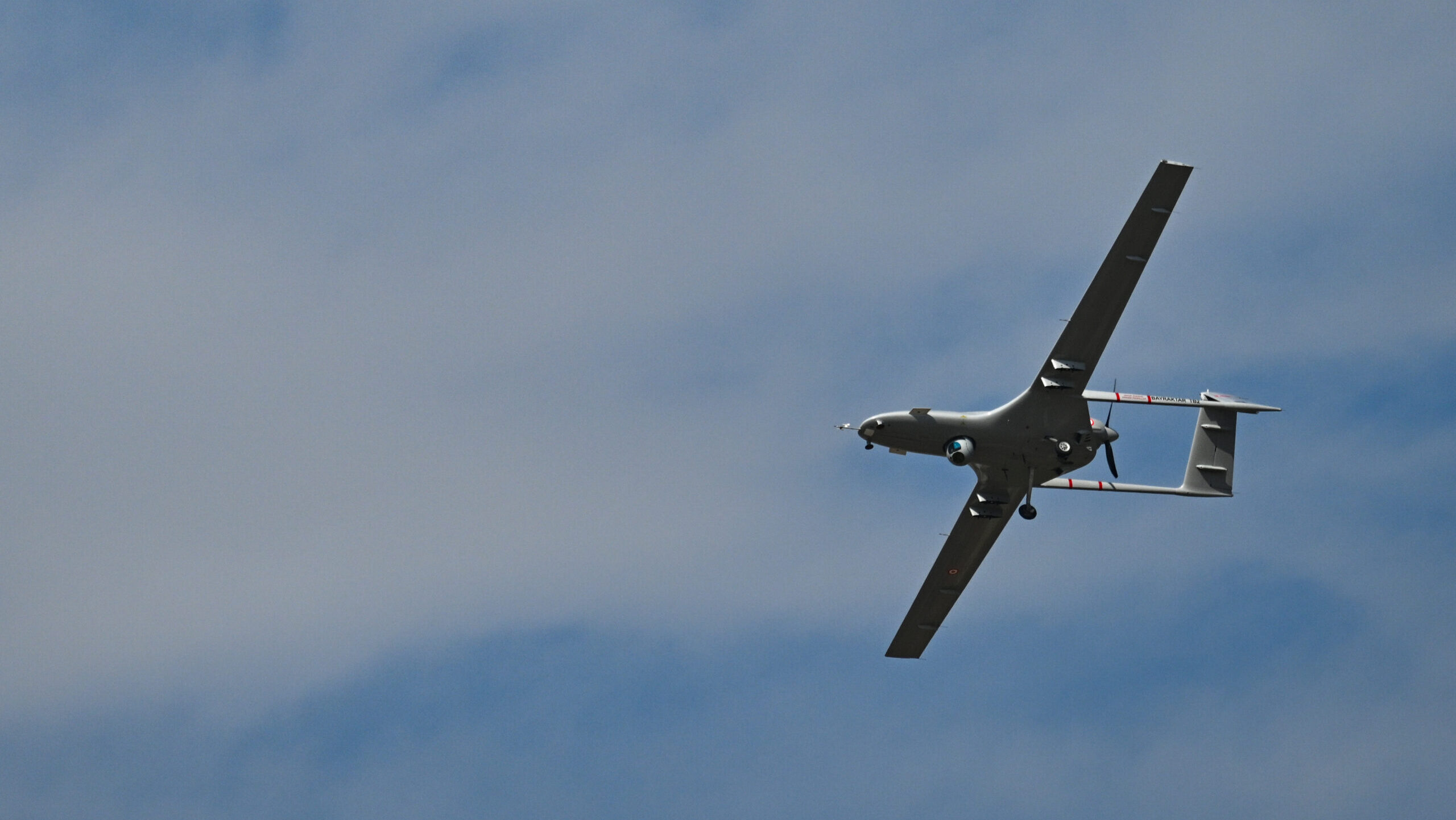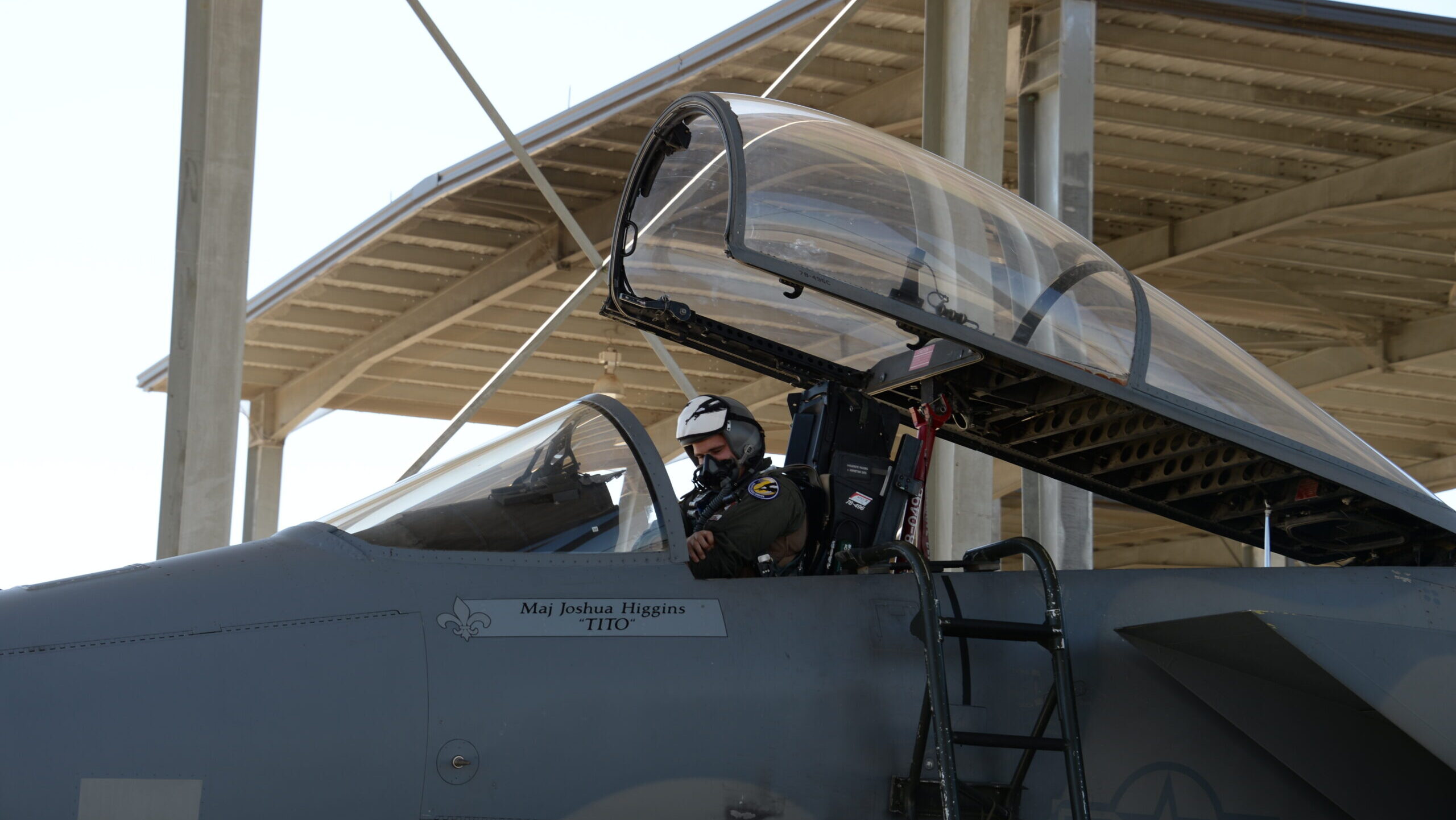Soldiers from 5th Armored Brigade, First Army Division West, developed a course of instruction to counter the threat of commercial, off-the-shelf unmanned aerial surveillance vehicles at McGregor Range Complex, N.M., June 28, 2019. (DVIDS)
WASHINGTON — Recent Chinese sanctions that have disrupted business for an American drone maker are a sign from Beijing that the US supply chain is still interwoven with Chinese entities — and the latest reason US defense firms should move to free themselves, according to a Defense Innovation Unit official.
“As a former American soldier, I don’t want Chinese things in the hands of my fellow soldiers. Unacceptable,” David Michelson, director of the autonomy portfolio at the DIU, said Wednesday during a Defense One event. “I think this is just a signal from the PRC [People’s Republic of China] that we are very tightly coupled with certain parts of the supply chain still.”
Michelson had been asked about recent Chinese sanctions on the US small drone-maker Skydio over its business with Taiwan, though the company says its only customer in Taiwan is the National Fire Agency. In a blog post, Skydio said it sources components for its drones outside China, but had gotten batteries from Chinese sources — at least until the sanctions cut off that supply. In the Oct. 30 note, the company said it’s rationing the batteries it has in stock and is developing other sources.
Though Skydio counts the US military among its customers, the US isn’t the only nation likely to be reminded of China’s influence in supply chains. Ukraine, currently fighting of a Russian invasion, reportedly has hundreds of Skydio drones.
More broadly the ubiquity of Chinese components in battlefield tech has long-troubled the Pentagon and American allies. In 2020 the DIU launched its Blue UAS program, a “holistic and continuous approach that rapidly vets and scales commercial unmanned aerial system (UAS) technology for the Department of Defense (DoD)” in part to ensure parts don’t come from adversaries.
Beyond the Blue UAS effort, avoiding Chinese supply lines — specifically related to batteries — could become mandatory if companies want to do business with the US Defense Department. Section 154 of the 2024 National Defense Authorization Act, for instance, states that beginning on Oct. 1, 2027, no funds appropriated or made available for the DoD can be spent to procure a battery produced by the listed Chinese-owned and -operated companies.
Some companies like Lyten, a Silicon Valley battery startup, are already taking steps to avoid future run-ins with Section 154. Lyten announced on Wednesday that it acquired manufacturing assets from Northvolt, a Swedish battery manufacturer. This move will allow Lyten to manufacture up to 175 megawatt-per-hour (one million watts of power for one hour) of Lithium-Sulfur batteries “to meet growing demand from defense, drone, and energy storage applications,” according to a company statement provided to Breaking Defense.
“The speed of Lyten’s manufacturing expansion represents a timely move to assist the U.S. Department of Defense and the military services in complying with the 2024 National Defense Authorization Act (NDAA), which mandates the acquisition of domestic batteries,” Dan Cook, Lyten’s CEO and cofounder, wrote in the statement.
The battery conundrum is a timely one, as Michelson said the US needs to seriously invest in drones.
“One of the things we’ve learned from Ukraine […] is you need a lot. You just have to have a lot, and the volume that we’re seeing is just in a very difficult place right now,” Michelson said. “So the more we can buy, the more that we can field, the more that we can have units have [drones] in their hands and learn, the better and better we’re going to get.”
Lee Ferran contributed to this report.


